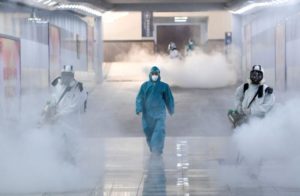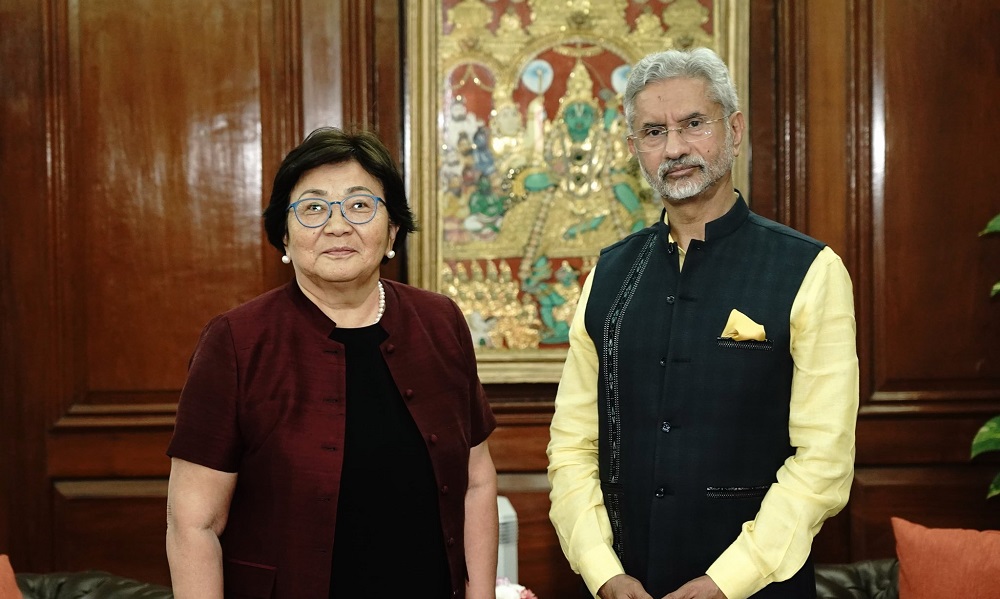Latest News
What we know and don’t know about the coronavirus

 The spread of a new coronavirus in mainland China and to 27 countries and regions beyond is alarming health experts. Here is what we know – and do not know – about the virus:
The spread of a new coronavirus in mainland China and to 27 countries and regions beyond is alarming health experts. Here is what we know – and do not know – about the virus:
HOW DANGEROUS IS THE VIRUS?
The coronavirus family of viruses includes the common cold and more serious diseases such as Severe Acute Respiratory Syndrome (SARS) and Middle East Respiratory Syndrome (MERS).
Many of those with the new virus who have died had pre-existing medical conditions or were elderly, those with weakened immune systems.
Coronavirus infections have a wide range of symptoms, including fever, cough and breathing difficulties.
Statistics from China indicate that about 2% of people infected with the new virus have died, suggesting it may be deadlier than seasonal flu but less deadly than SARS, which killed about 10% of infected individuals. The MERS outbreak in 2012 had a fatality rate of about 35%.
Scientists have labeled the new virus 2019-nCoV.
 HOW IS IT TRANSMITTED AND HOW CAN IT BE PREVENTED?
HOW IS IT TRANSMITTED AND HOW CAN IT BE PREVENTED?
The virus can be transmitted via droplets when an infected person breathes out, coughs or sneezes, and can also spread via contaminated surfaces such as door handles.
Experts have said it is more easily transmitted than the SARS virus. The incubation period is up to 14 days. People may be able to infect others before symptoms appear.
The World Health Organization (WHO) recommends that people frequently wash hands, cover mouth and nose when sneezing or coughing, and avoid close contact with those who are sick.
DO FACE MASKS HELP?
“We recommend the use of masks for people who have symptoms … because the virus transmits through droplets,” says medical expert Sylvie Briand.
But they do not guarantee protection against infection.
“For people who don’t have symptoms, the mask in fact is not useful,” Briand says.
The American Centers for Disease Control’s advice is that face masks are not required for the general public.
IS THERE ANY TREATMENT?
There is no vaccine.
Chinese scientists were able to identify the genetic sequence of the new coronavirus and shared it publicly. Scientists in Australia have developed a lab-grown version of the virus, a step toward creating a vaccine.
Drugmakers around the globe expect to begin testing experimental vaccines on humans in about three months.
 WHERE HAS IT SPREAD?
WHERE HAS IT SPREAD?
About 99% of the more than 20,000 cases have been reported in mainland China. Nearly 230 cases have been reported in about 27 other countries and regions, a Reuters tally based on official statements shows.
At least 490 people have died in China, most in and around the city of Wuhan, where the virus emerged late last year. One person has died in Hong Kong and one in the Philippines, both following visits to Wuhan.
Singapore confirmed four more coronavirus cases on Feb. 5 taking its tally to 28. Thailand has 25 cases.
It took the new coronavirus 48 days to infect the first1,000 people. It took SARS 130 days to infect 1,000 people. It took MERS 2.5 years to infect 1,000 people.
WHAT ARE AUTHORITIES DOING?
The Chinese government has virtually locked down the central province of Hubei, home to 60 million people, and its capital Wuhan.
China is facing mounting isolation as airlines suspend flights to its cities.
The United States and Australia have banned entry to foreign nationals who have recently traveled to China.
Many countries have evacuated their citizens from Hubei and are putting them in quarantine or isolation upon return.
The WHO has not recommended travel or trade curbs with China.
WHERE DID THE VIRUS COME FROM?
It is believed to have originated in a food market in Wuhan that was illegally selling wildlife. Health experts think it may have originated in bats and then passed to humans, possibly via another species.
Source: Reuters
Latest News
IEA urges World Bank to resume work on 7,000 incomplete projects

Officials at the Ministry of Rural Rehabilitation and Development (MRRD) say 7,000 incomplete projects of the World Bank are at risk of destruction in Afghanistan. They call on the World Bank to resume the work of these projects.
According to them, discussions have been held with the World Bank about these projects, but there has been no result yet.
“7,000 incomplete projects are being destroyed, and if the work is not started, these projects will be destroyed. We ask the World Bank to resume the work of these projects as soon as possible,” said Noorul Hadi Adel, the spokesperson of MRRD.
Meanwhile, members of the private sector also ask international institutions to resume their work in Afghanistan.
According to the officials of this sector, with the start of these projects, job opportunities will be provided for thousands of people in the country.
“These projects create employment for our people and the country will grow a lot,” said Mirwais Hajizadeh, a member of the private sector.
However, economic experts stated if the work of these projects does not start soon, they will be destroyed and the investments made in them will be wasted.
Latest News
Ten people killed by floods in Helmand

Ten people have been killed and six others injured by floods in Helmand province in the past week, local officials said on Friday.
According to officials, seven of those were members of the same family, and they were killed in Kajaki district last night.
“Most of the people moved from vulnerable areas to high lands and mountains, and thanks Allah the number of casualties is low,” Sher Mohammad Vahdat, the head of information of the Directorate of Information and Culture in Helmand, said adding rescue teams and security forces have been dispatched to help people.
It is said that the telecommunication system has also been disrupted due to the effect of floods in Kajaki district. Floods have also destroyed thousands of acres of agricultural land.
Latest News
UN envoy meets Indian foreign minister to discuss Afghanistan

Roza Otunbayeva, the UN Secretary General’s Special Representative for Afghanistan, met with the Indian Foreign Minister Subrahmanyam Jaishankar in New Delhi and discussed issues related to Afghanistan, it was announced on Thursday.
During the meeting, Otunbayeva thanked India for “its critical humanitarian support and longstanding friendship for the Afghan people” and discussed the importance of regional and international cooperation to address prevailing challenges in Afghanistan, UNAMA said on X.
Jaishankar also said on X that the sides exchanged views on the current situation in Afghanistan.
“Underlined that India has provided wheat, medicines, pesticides and school supplies. Appreciate the role of UN agencies as partners in these endeavors,” he said.
-

 Sport4 days ago
Sport4 days agoACL fever grows as fixtures finalized
-

 World5 days ago
World5 days agoUS will not take part in any Israeli retaliatory action against Iran
-

 Latest News4 days ago
Latest News4 days agoOver 50 people dead in traffic accidents over Eid
-

 Latest News4 days ago
Latest News4 days agoUS identifies Kabul airport suicide bomber
-

 Business4 days ago
Business4 days agoAfghanistan-Kazakhstan chamber of commerce opens in Herat
-

 Latest News5 days ago
Latest News5 days agoGood rains enable DABS to increase power production in Kabul
-

 World4 days ago
World4 days agoIsraeli military vows response to Iran attack as calls for restraint mount
-

 Latest News3 days ago
Latest News3 days agoPakistani police give Afghans in Balochistan one day to leave





























